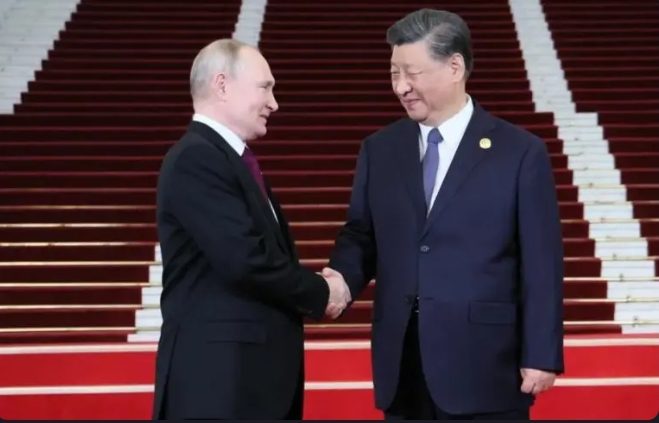Russia and China, key members of the BRICS group, recently declared their intent to conduct 90% of their trade in Ruble and Yuan, signaling a notable advancement in global de-dollarization efforts. This decision follows discussions between Russian President Vladimir Putin and China’s Xi Jinping to deepen their partnership and collaboration.
The move carries significant implications and may pave the way for a potential shift in the global reserve currency landscape, reducing the dominance of the US Dollar. The BRICS coalition, comprising Brazil, Russia, India, China, and South Africa, has taken proactive steps towards de-emphasizing the US Dollar, advocating for the use of national currencies in international trade to decrease reliance on the US Dollar.

With a specific focus on lessening exposure to Western sanctions, Russia has been a frontrunner in advocating for de-dollarization. By encouraging the utilization of national currencies in trade, Russia aims to bolster its economic sovereignty and decrease susceptibility to external economic pressures.
Exploration of a common BRICS currency is also underway, which would diminish the prevalence of the US Dollar in global markets. This currency, supplementary to existing local currencies, would streamline trade between member nations, minimizing the necessity for the US Dollar as an intermediary currency.
The de-dollarization initiatives led by the BRICS alliance could yield substantial geopolitical repercussions by diminishing the impact of the US Dollar globally and potentially fostering a more multilateral world framework. Traditionally, the US Dollar has held sway as the primary reserve currency, aiding in upholding US economic and political influence on a worldwide scale.
Yet, with the ascent of emerging economies like China and India, and the escalating significance of cross-border trade, the utilization of national currencies is gaining prominence. The BRICS alliance is spearheading this transition, and their endeavors in promoting de-dollarization may steer towards a diversified and multilateral global economic landscape.
To sum up, Russia and China’s recent agreement to conduct the majority of their trade in Ruble and Yuan represents a pivotal stride towards de-dollarization.

